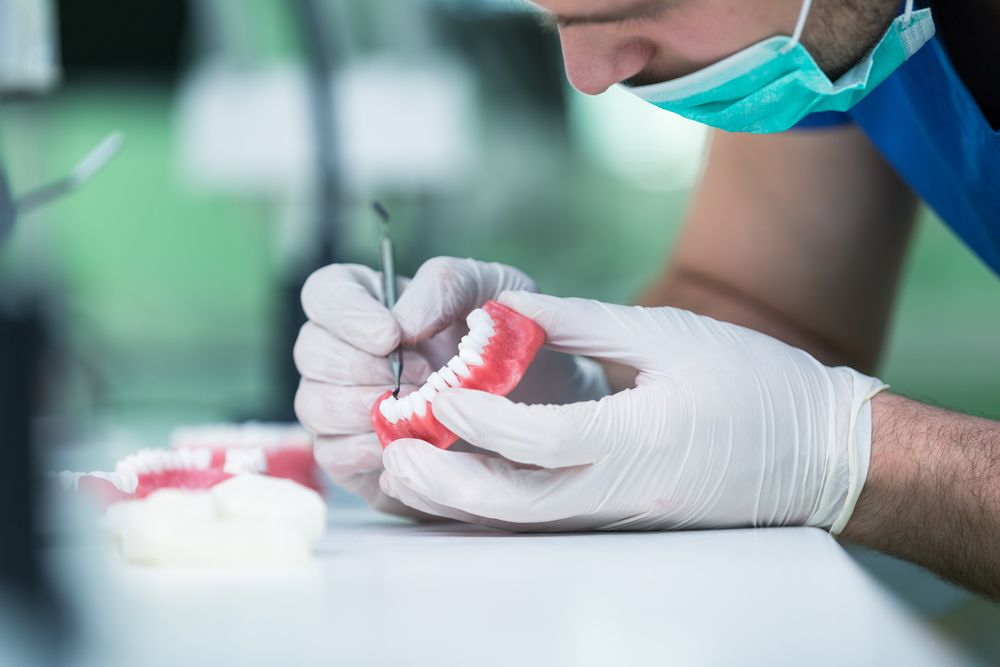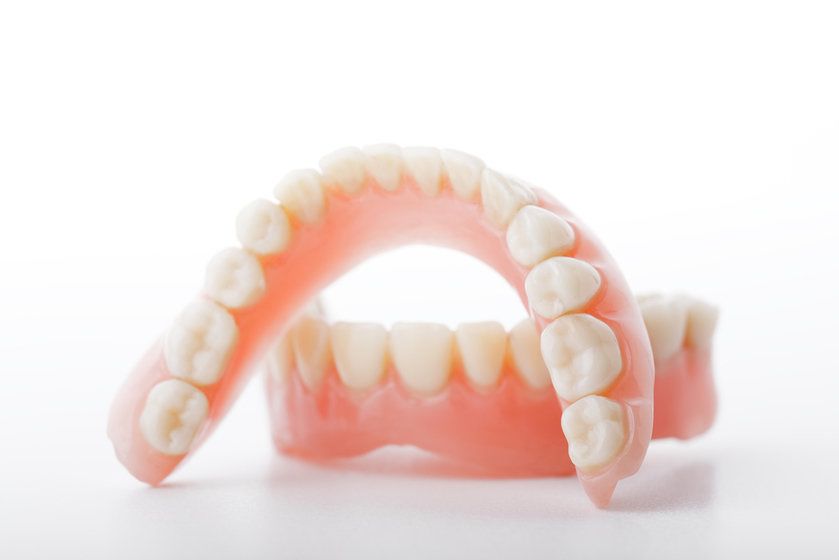Denture Repair
With proper care and maintenance, most dentures can last up to 10 years before needing replacement. However, at some point, you might need a professional denture repair if you accidentally damage your dentures. Most dentists who perform restorative dentistry are able to provide efficient repair services for their patients. Your dentist understands that broken dentures can cause difficulty eating, speaking, or decrease your self-confidence. To help you return to your normal life as quickly as possible, some dentists offer same-day repairs. To prevent damaging your denture, you should follow the care instructions provided by your dentist and schedule regular checkups to identify concerns with your prosthetics before it is too late.

How Damage Occurs
There are a variety of scenarios, both accidental and gradual, that can cause your dentures to break, such as:
- Jaw shrinkage: As bone loss occurs over time, your dentures may fit poorly and move when you speak. This instability can create excessive pressure on your dentures and increase the likelihood of a fracture. Many patients choose implant-supported dentures to decrease the risk of bone loss and securely anchor their dentures to their jawbone.
- Natural wear and tear: This is one of the most common causes of damage to dentures, as your dentures are constantly put under stress when you chew. Over the years, your dentures may lose their strength.
- Accidental damage: Dentures can fall and break when you are taking them out in the evenings, during cleaning, or if you misplace them.
Without properly functioning dentures, your ability to eat or speak may be affected. Wearing your broken dentures can also cause sores and irritation inside of your mouth. Rather than letting your broken dentures affect your self-confidence, you should schedule a visit to your dentist immediately.
What To Do If Your Denture Breaks
If you notice that your dentures are broken, do not attempt to repair them at home with glue or a home-repair kit. This can cause irreparable damage to the dentures and require more costly repairs or replacement. Your dentures are created by skilled ceramists using high-quality tools and materials that cannot be store-bought. Call your dentist as soon as possible to schedule an appointment. If there is a piece of denture or wiring that has broken apart from the rest of the prosthetic, bring this to your appointment. To transport the broken dentures, place them in a safe case. It is important that you do not wear your damaged dentures, as this can cause additional damage to your dentures or hurt your mouth.

If your dentures break, schedule a consultation with your dentist as soon as possible.
How Your Dentist Can Help
During your consultation, your dentist will assess the damage, determine the extent of the repair, and provide a cost estimate and turnaround time. Most dentists can repair the dentures in their office or work with local labs to complete high-quality repairs with a quick turnaround time. A dentist can typically repair simple or complex dentures including:
- Broken dentures
- Cracked dentures
- Shattered dentures
- Chipped teeth
- Loose teeth
- Missing teeth
- A piece of acrylic base that falls off
If you do not have an extra pair of dentures, ask your dentist whether he or she can provide same-day repair. If not, most labs can return your dentures within a day or two. If the damage was caused by poor fit, your dentist may recommend relining or rebasing your dentures. However, if the damage is too extensive, your dentist may recommend replacing your dentures entirely. To help you maintain your ability to eat and speak, your dentist will also discuss your temporary replacement options with you.
How to Prevent Broken Dentures
To decrease the risk of broken dentures, there are several steps that you can take at home:
- Avoid brushing dentures with a hard-bristled brush and use a soft-bristle only
- Follow the care and cleaning instructions provided by your dentist
- Store them somewhere safe when you remove them
- If your dentures do not fit properly, do not attempt to adjust the metal attachments or clasps on your own
Proper care and regular cleanings can help you keep your dentures in good condition for many years to come.
